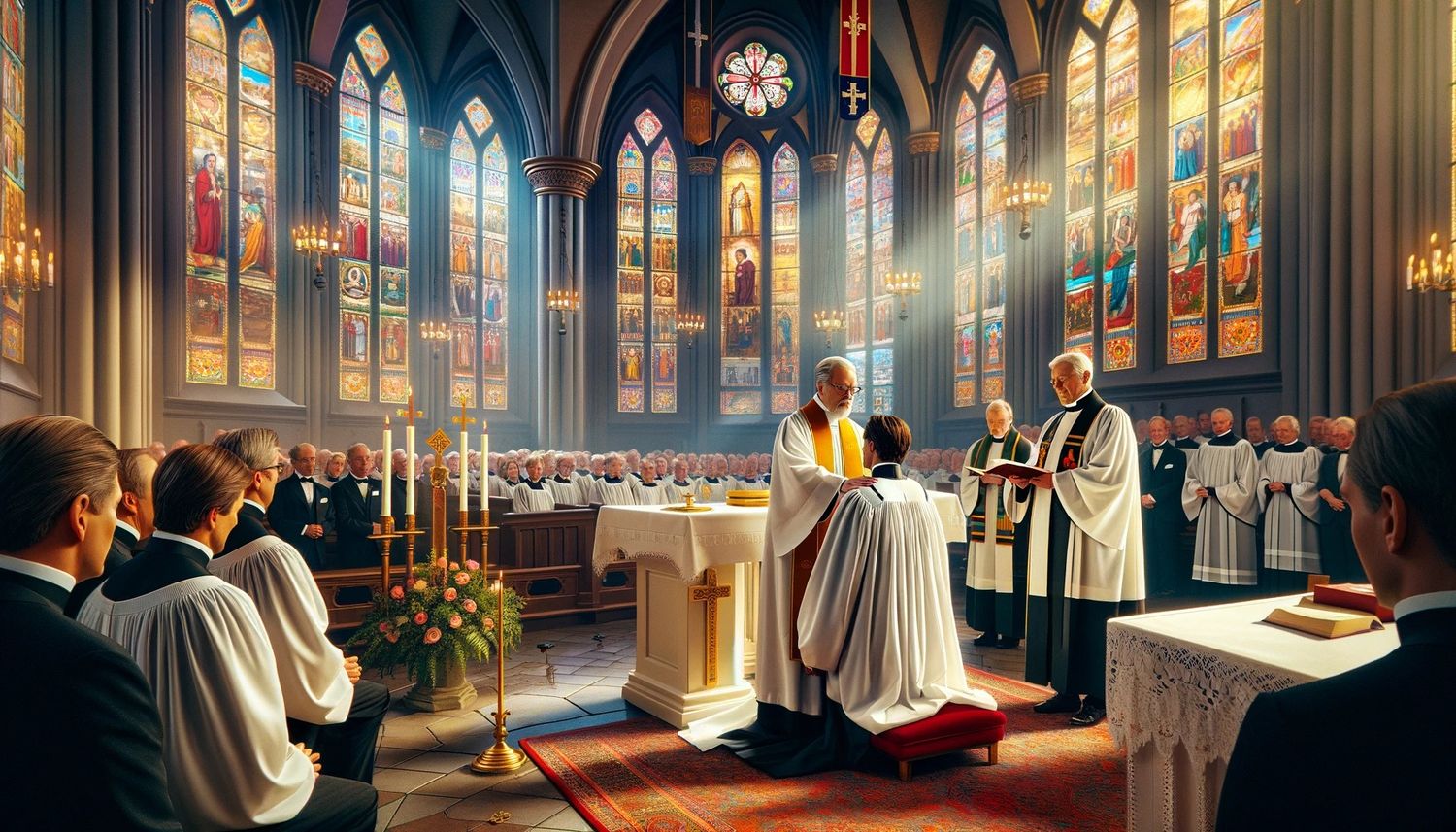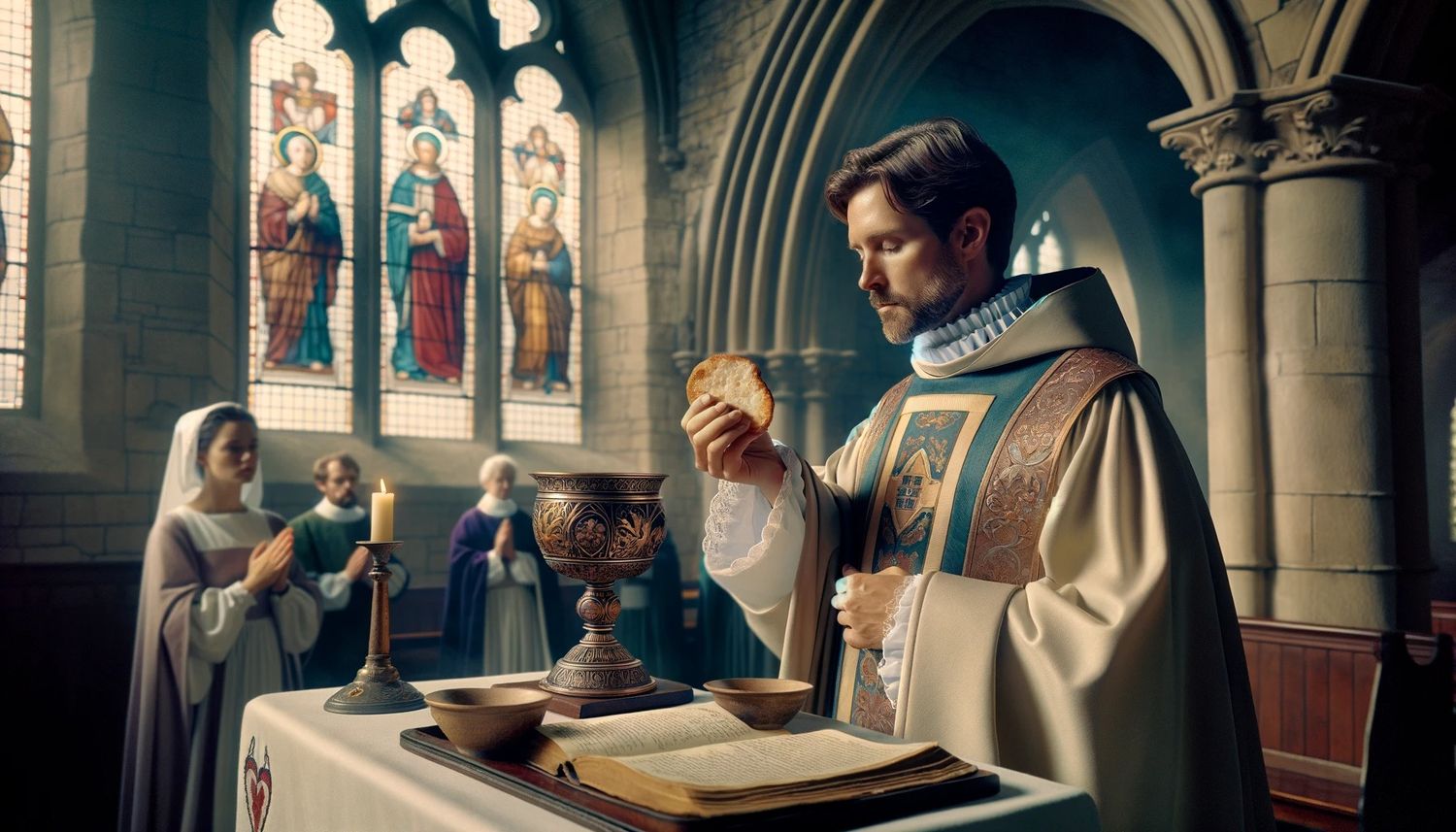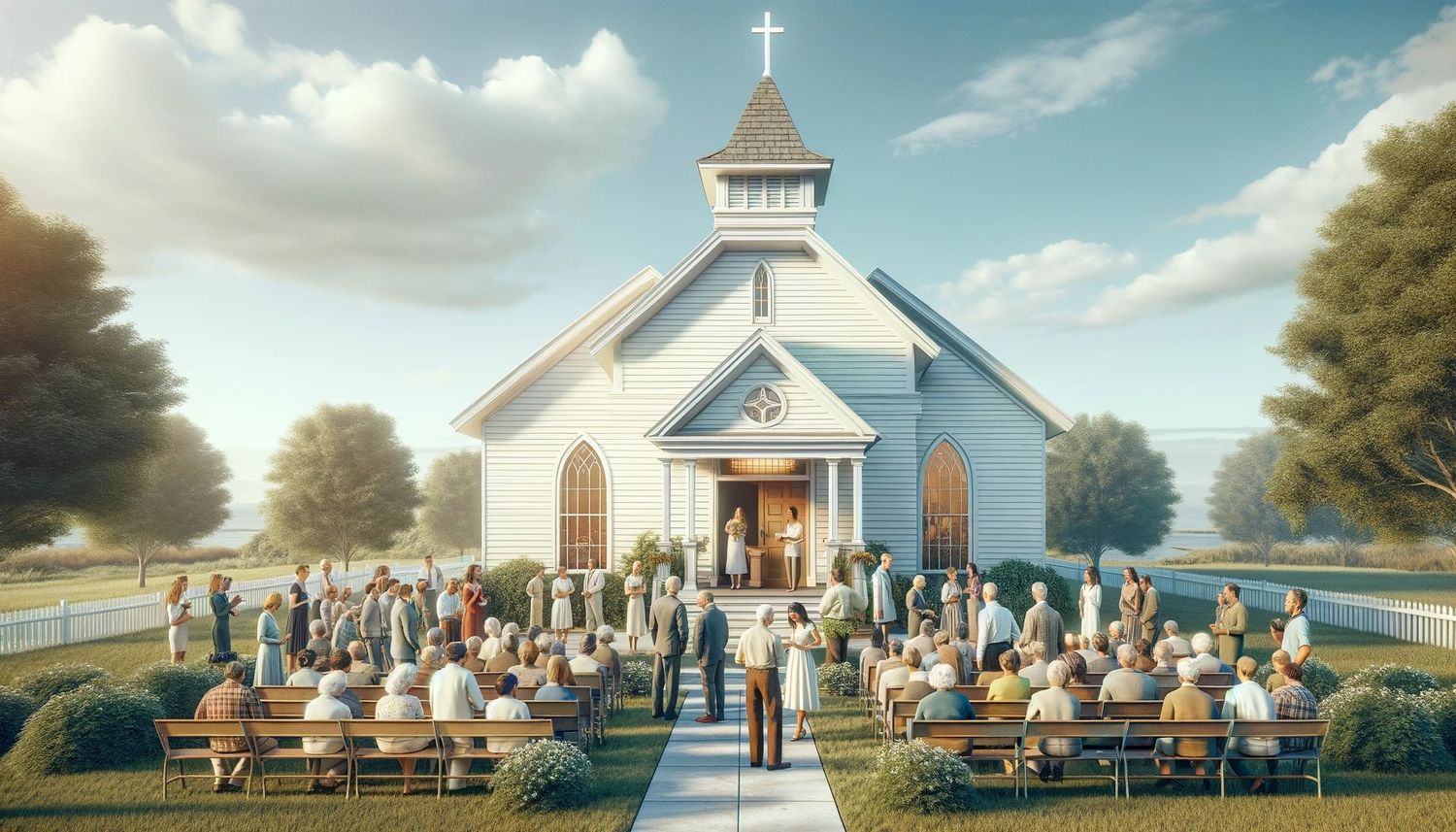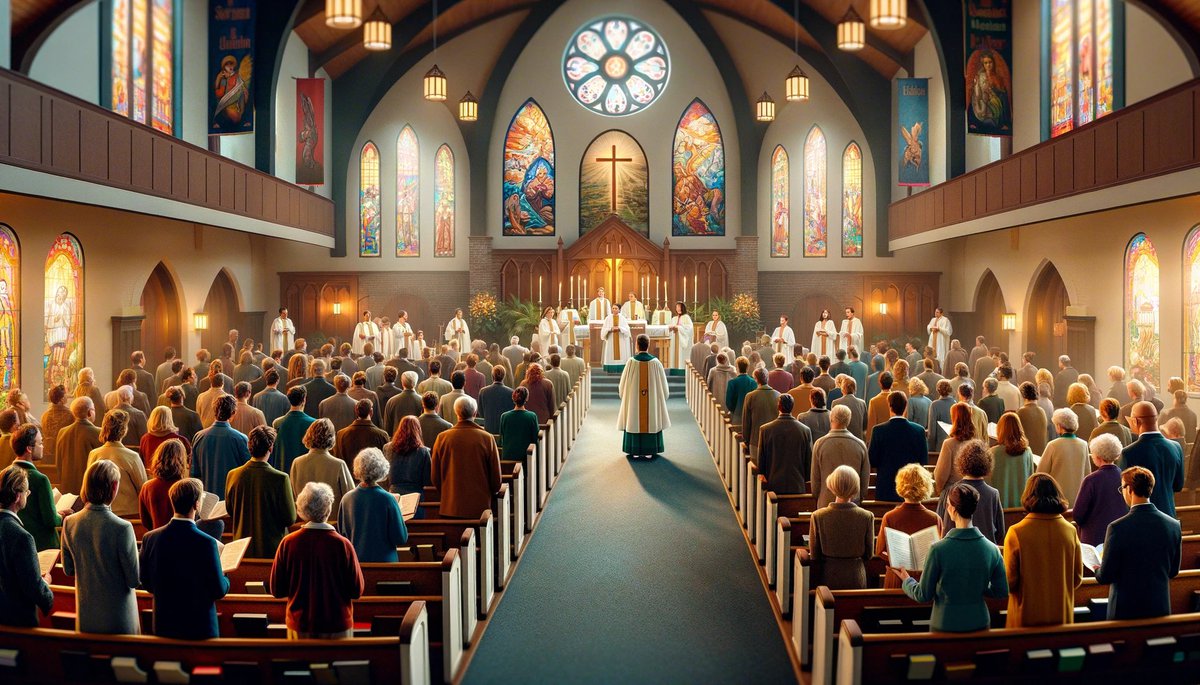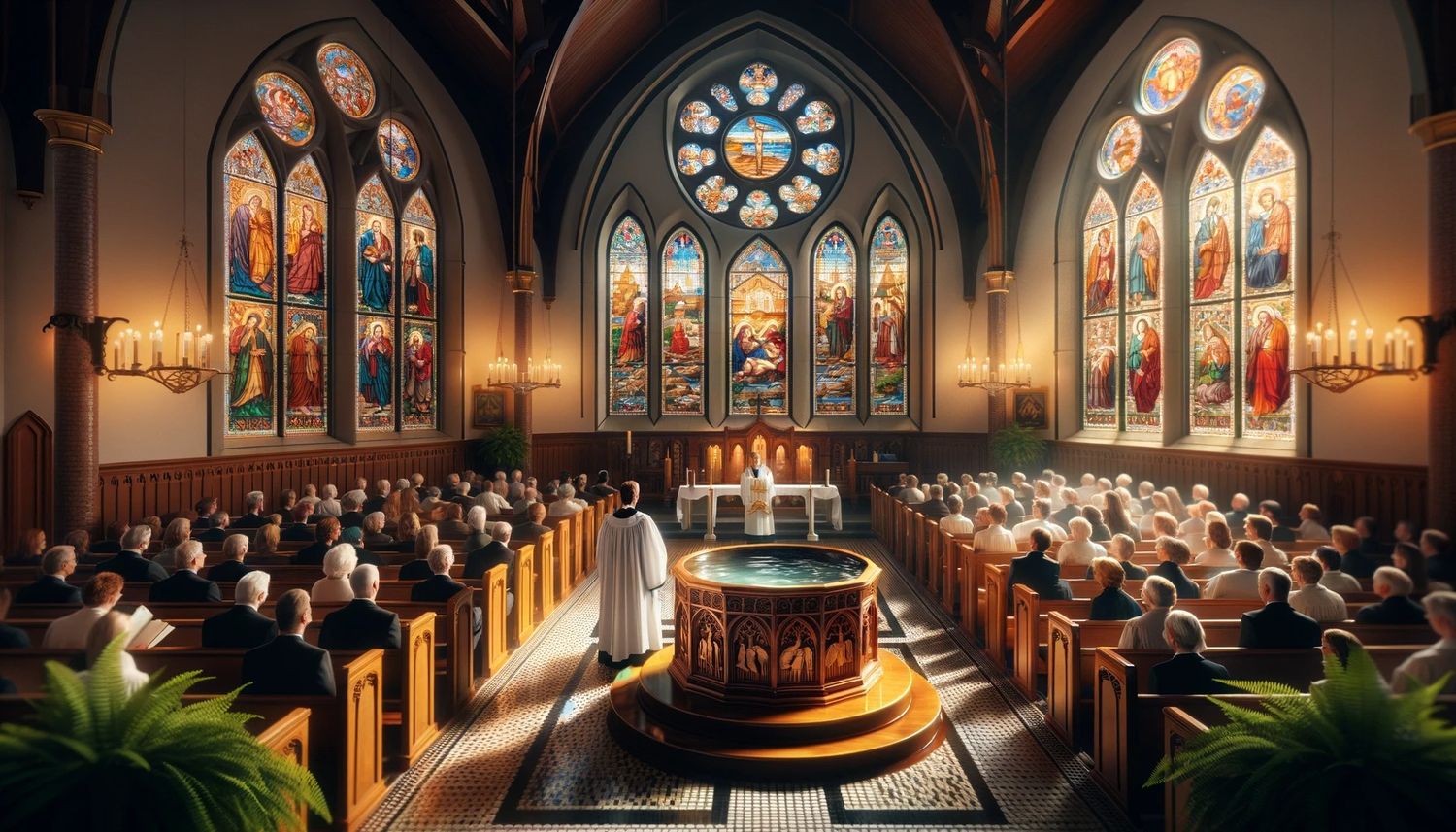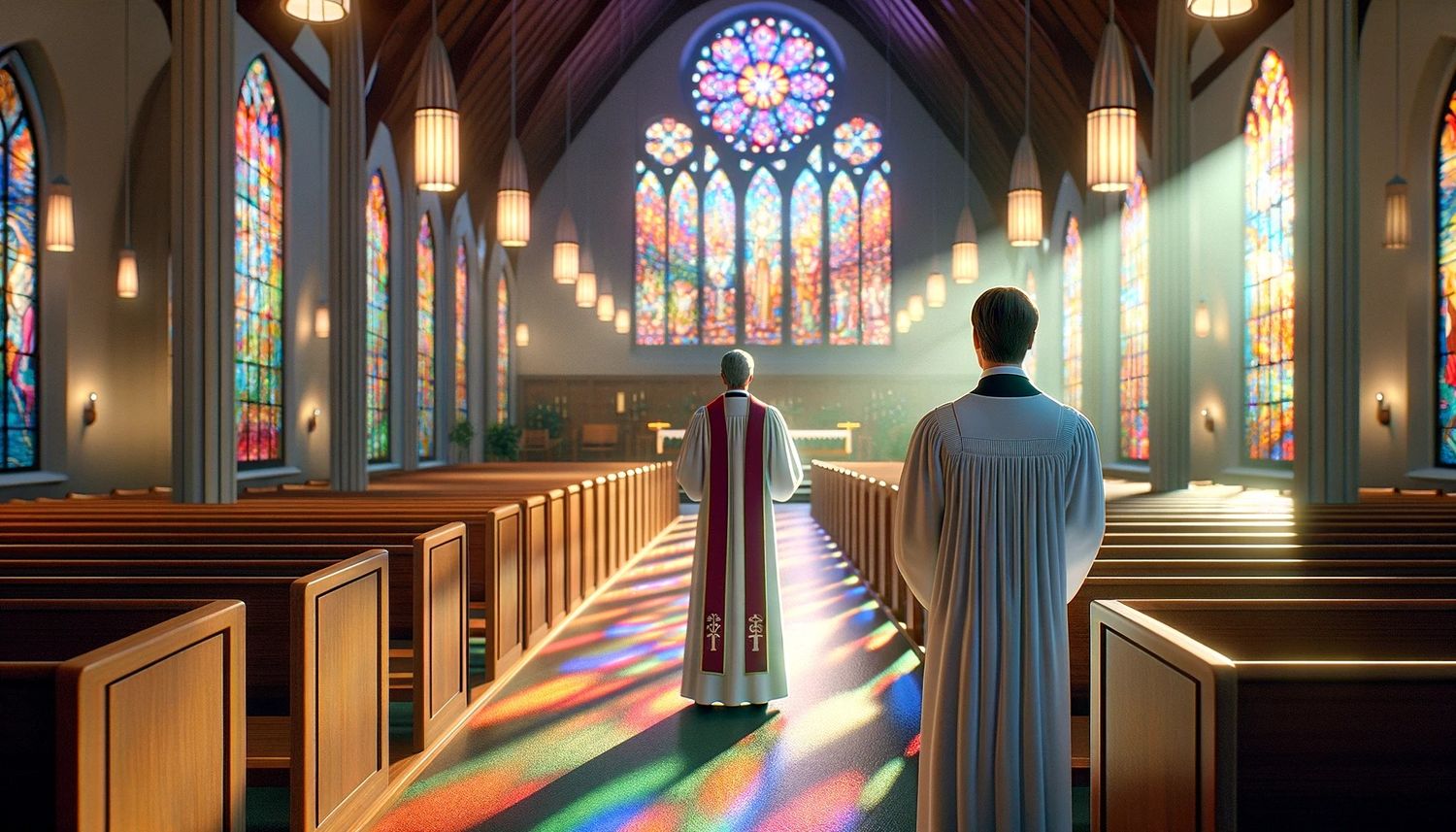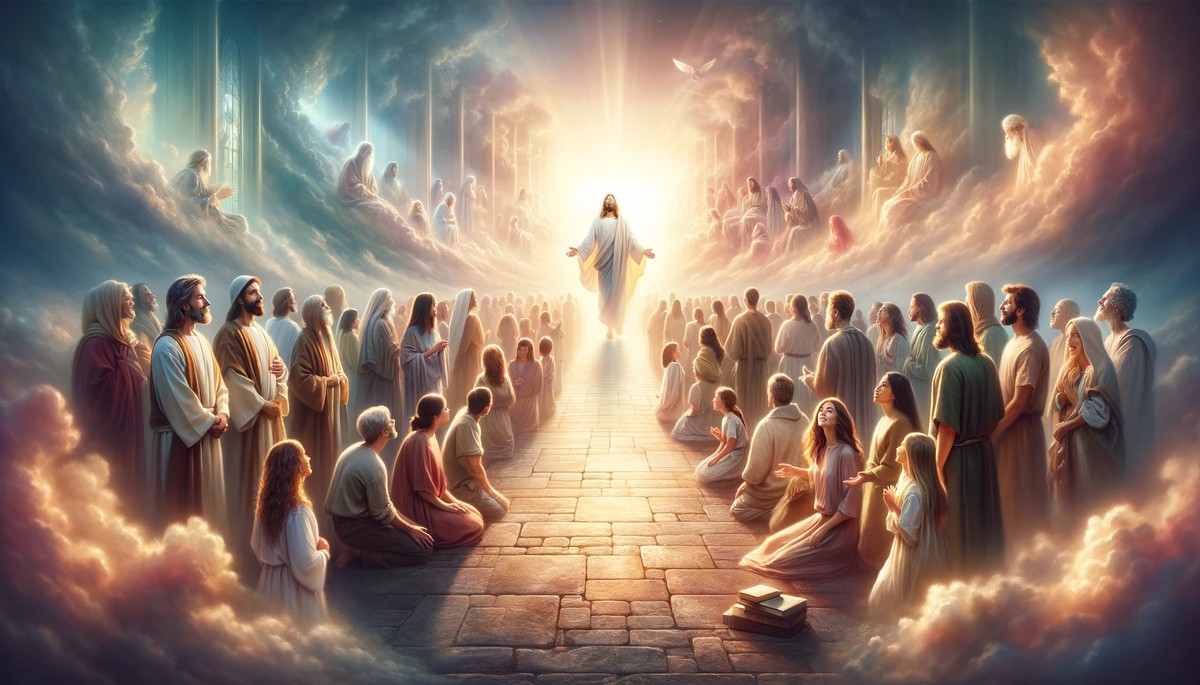Home>Theology and Spirituality>Why Do Lutheran Pastors Get To Marry


Theology and Spirituality
Why Do Lutheran Pastors Get To Marry
Published: March 3, 2024
Ericka Andersen, an editor at Christian.net, expertly merges digital strategy with content creation, focusing on faith and societal issues. Her communication skills enhance the platform's engaging narratives, fostering meaningful dialogue on belief's impact on society.
Discover the theological and spiritual reasons behind why Lutheran pastors are allowed to marry. Explore the unique perspectives and traditions within this faith.
(Many of the links in this article redirect to a specific reviewed product. Your purchase of these products through affiliate links helps to generate commission for Christian.net, at no extra cost. Learn more)
Table of Contents
The Historical Basis for Marriage in the Lutheran Church
The historical basis for marriage in the Lutheran Church can be traced back to the teachings of Martin Luther, the influential figure behind the Protestant Reformation. Luther, a former Catholic monk, emphasized the importance of marriage as a divine institution. He believed that marriage was a natural and God-given relationship, and that it was not only a civil contract but also a sacred bond before God. Luther's views on marriage were revolutionary for his time, as they challenged the celibacy requirement for clergy that was prevalent in the Catholic Church. This laid the groundwork for the Lutheran tradition of allowing pastors to marry.
-
Influence of Martin Luther: Martin Luther's own marriage to Katharina von Bora in 1525 was a significant event that demonstrated his belief in the value of marriage. By marrying a former nun, Luther not only set an example but also challenged the celibacy requirement for clergy. This act further solidified the historical basis for marriage in the Lutheran Church.
-
Reformation Principles: The Protestant Reformation, led by Luther, sought to reform the practices of the Catholic Church, including its views on marriage. The emphasis on the priesthood of all believers and the rejection of monasticism contributed to the Lutheran perspective that marriage was not only permissible but also honorable for clergy.
-
Lutheran Confessions: The Lutheran Confessions, which are foundational documents for Lutheran theology, affirm the value of marriage and reject the notion of celibacy as a requirement for clergy. These confessions, such as the Augsburg Confession and the Apology of the Augsburg Confession, provide historical and theological support for the practice of allowing Lutheran pastors to marry.
-
Continuation of Tradition: Over time, the Lutheran Church has maintained the tradition of allowing pastors to marry, reflecting the historical basis established during the Reformation. This continuity underscores the significance of marriage within the Lutheran faith and its acceptance as a legitimate vocation for clergy.
The historical basis for marriage in the Lutheran Church is deeply rooted in the teachings of Martin Luther, the principles of the Protestant Reformation, the Lutheran Confessions, and the ongoing tradition within the church. These historical factors have shaped the understanding of marriage as a sacred institution and have influenced the practice of allowing Lutheran pastors to marry.
Read more: Why Do Lutheran Pastors Wear Robes
The Role of Marriage in the Life of a Lutheran Pastor
Marriage plays a significant role in the life of a Lutheran pastor, influencing various aspects of their personal and professional journey. Here's a closer look at the multifaceted role of marriage in the life of a Lutheran pastor:
-
Companionship and Support: Marriage provides Lutheran pastors with a source of companionship and emotional support. The partnership and intimacy within marriage offer pastors a confidant and a companion to share the joys and challenges of ministry. This support system can be invaluable in navigating the demands of pastoral work and maintaining emotional well-being.
-
Family Life: For Lutheran pastors, marriage often includes the experience of raising a family. This aspect of marriage allows pastors to engage in the everyday experiences of family life, from parenting to participating in family traditions and milestones. The family unit can serve as a grounding force, reminding pastors of the broader human experience and providing insights that enrich their pastoral care.
-
Personal Growth and Development: Marriage can be a catalyst for personal growth and development for Lutheran pastors. The dynamics of marriage, including communication, compromise, and mutual respect, offer pastors opportunities for self-reflection and growth. These experiences can contribute to their emotional maturity and interpersonal skills, which are integral to their pastoral responsibilities.
-
Modeling Healthy Relationships: As married individuals, Lutheran pastors have the opportunity to model healthy, loving relationships within their congregations. Their marriages can serve as examples of commitment, respect, and partnership, offering a tangible representation of the values upheld within the Lutheran faith. This modeling can have a positive impact on the congregation's understanding of marriage and relationships.
-
Balancing Ministry and Personal Life: Marriage presents Lutheran pastors with the challenge of balancing their ministry commitments with their personal and family life. Negotiating this balance requires intentional effort and prioritization, as pastors strive to fulfill their pastoral duties while nurturing their marital and familial relationships. This dynamic balance is a continual aspect of a pastor's life, influencing their overall well-being and effectiveness in ministry.
-
Spiritual Partnership: Within marriage, Lutheran pastors often find a spiritual partner who shares their faith and supports their spiritual journey. This partnership can deepen their own spiritual life and provide a source of mutual encouragement and accountability. The shared spiritual foundation can enhance the pastor's sense of calling and vocation, shaping their approach to ministry.
The role of marriage in the life of a Lutheran pastor encompasses emotional support, family experiences, personal growth, modeling healthy relationships, balancing commitments, and spiritual partnership. These facets of marriage intertwine with the pastor's professional responsibilities, contributing to their holistic well-being and influencing their pastoral approach within the Lutheran faith community.
The Theological Justification for Allowing Lutheran Pastors to Marry
The theological justification for allowing Lutheran pastors to marry is deeply rooted in the theological understanding of marriage within the Lutheran tradition. Here are the theological principles that underpin this justification:
-
Sacred Institution: In Lutheran theology, marriage is regarded as a sacred institution established by God. The Lutheran perspective emphasizes the divine origin of marriage, viewing it as a holy union that reflects the relationship between Christ and the Church. This theological understanding affirms the value of marriage for all individuals, including pastors, as it is seen as a reflection of God's design for human relationships.
-
Vocation and Calling: Lutheran theology recognizes marriage as a vocation and calling for individuals, including those in pastoral ministry. The Lutheran understanding of vocation encompasses various roles and relationships in life, including marriage. For pastors, the vocation of marriage is seen as complementary to their vocation of ministry, with both contributing to their holistic identity and service within the church.
-
Biblical Foundation: The theological justification for allowing Lutheran pastors to marry is supported by the biblical teachings on marriage. Lutheran theology affirms the biblical narratives and teachings that uphold the institution of marriage, such as the creation account in Genesis and the teachings of Jesus and the apostles. These biblical foundations provide theological support for the practice of allowing pastors to enter into the covenant of marriage.
-
Human Experience and Relationships: Lutheran theology acknowledges the significance of human experience and relationships in shaping one's understanding of God and faith. Marriage is viewed as a fundamental aspect of human experience, offering opportunities for love, companionship, and mutual support. For pastors, the theological justification for marriage aligns with the recognition of the formative and enriching nature of marital relationships within the context of their faith and ministry.
-
Rejection of Celibacy Mandate: The theological justification for allowing Lutheran pastors to marry is also influenced by the rejection of mandatory celibacy for clergy. Unlike some other Christian traditions, the Lutheran Church does not impose celibacy as a requirement for pastoral ministry. This theological stance reflects the belief that marriage is a legitimate and honorable vocation for pastors, in line with the broader understanding of vocation within Lutheran theology.
The theological justification for allowing Lutheran pastors to marry is grounded in the sacred nature of marriage, the recognition of marriage as a vocation, the biblical teachings on marriage, the significance of human relationships, and the rejection of mandatory celibacy. These theological principles affirm the value of marriage for pastors within the Lutheran tradition, reflecting a holistic understanding of vocation, relationships, and faith.
The Practical Implications of Marriage for Lutheran Pastors
Marriage holds practical implications for Lutheran pastors that extend into various dimensions of their personal and professional lives. These implications encompass the dynamics of ministry, family life, emotional well-being, and the pastoral role within the faith community. Here's a closer look at the practical implications of marriage for Lutheran pastors:
-
Emotional Support and Well-being: Marriage provides Lutheran pastors with a source of emotional support and companionship, which can significantly impact their well-being. The intimate bond and mutual care within marriage offer pastors a refuge during times of stress or emotional challenges. This emotional stability can enhance their resilience and capacity to navigate the demands of pastoral ministry.
-
Family Dynamics: For Lutheran pastors, marriage often includes the experience of family life, including parenting and spousal relationships. The practical implications of marriage extend to the pastor's role within the family unit, influencing their responsibilities, time management, and the integration of family dynamics with their pastoral commitments. This interplay between family life and ministry requires intentional navigation and balance.
-
Community Engagement: Marriage can shape the pastor's engagement with the congregation and the broader community. The pastor's marital relationship can serve as a model of healthy family life and relationships, offering a tangible example within the faith community. Additionally, the pastor's spouse often becomes an integral part of the church community, contributing to the pastoral family's presence and influence.
-
Personal Growth and Development: The practical implications of marriage for Lutheran pastors encompass personal growth and development. The dynamics of marriage, including communication, compromise, and shared decision-making, offer pastors opportunities for self-reflection and growth. These experiences can contribute to their emotional maturity and interpersonal skills, which are integral to their pastoral responsibilities.
-
Balancing Commitments: Marriage presents Lutheran pastors with the challenge of balancing their pastoral commitments with their personal and family life. Negotiating this balance requires intentional effort and prioritization, as pastors strive to fulfill their pastoral duties while nurturing their marital and familial relationships. This dynamic balance is a continual aspect of a pastor's life, influencing their overall well-being and effectiveness in ministry.
-
Support System: The practical implications of marriage include the presence of a supportive partner who can share in the pastor's joys and challenges. This support system can be invaluable in navigating the demands of pastoral work and maintaining emotional well-being. The partnership and collaboration within marriage can enhance the pastor's capacity to fulfill their pastoral responsibilities.
The practical implications of marriage for Lutheran pastors encompass emotional support, family dynamics, community engagement, personal growth, balancing commitments, and the presence of a supportive partner. These implications intertwine with the pastor's professional responsibilities, contributing to their holistic well-being and influencing their pastoral approach within the Lutheran faith community.
The Debate Surrounding Marriage for Lutheran Pastors
The debate surrounding marriage for Lutheran pastors encompasses a range of perspectives and considerations within the broader context of church practice and theology. This ongoing discourse reflects differing viewpoints on the implications of marital status for pastoral ministry and the interpretation of historical and theological foundations. Here are the key aspects of the debate:
-
Historical and Theological Interpretations: The debate often centers on the interpretation of historical and theological sources within the Lutheran tradition. Some proponents argue that the historical basis for allowing pastors to marry, as established during the Reformation, should be upheld as a fundamental aspect of Lutheran identity. They emphasize the teachings of Martin Luther and the Lutheran Confessions as foundational support for the practice of married clergy. Conversely, opponents may question the contemporary relevance of historical precedent and advocate for a reevaluation of the theological rationale for allowing pastors to marry.
-
Celibacy and Ministry Commitments: A central point of contention in the debate is the perceived impact of marital status on a pastor's ability to fulfill their ministry commitments. Proponents of allowing pastors to marry assert that marriage can enrich the pastoral experience, providing emotional support and relational insights that enhance the pastor's effectiveness in ministry. They argue that the lived experience of marriage can contribute to a pastor's empathy and understanding of congregants' experiences. In contrast, opponents may express concerns about the potential distractions or conflicts that could arise from marital responsibilities, suggesting that celibacy may better align with the singular focus required for pastoral duties.
-
Pastoral Identity and Role Modeling: The debate also delves into the implications of marital status for the pastor's identity and role modeling within the faith community. Proponents of allowing pastors to marry emphasize the value of pastors as relatable, human role models who can authentically engage with the joys and challenges of family life. They contend that a pastor's marital relationship can serve as a tangible example of faith lived out in the context of everyday experiences. Conversely, opponents may raise questions about the potential complexities that could arise from the pastor's personal life intersecting with their pastoral role, particularly in relation to congregational dynamics and expectations.
-
Contemporary Context and Cultural Considerations: Within the debate, there is often discussion about the relevance of historical practices and theological principles in the contemporary cultural and ecclesiastical context. Proponents of allowing pastors to marry may advocate for a contextualized approach that acknowledges the evolving societal norms and the diverse experiences of clergy. They highlight the importance of recognizing the individual calling and discernment of pastors in relation to marriage. On the other hand, opponents may emphasize the need to uphold traditional norms and theological convictions as a means of preserving the distinctiveness of pastoral ministry within the Lutheran tradition.
-
Denominational Policies and Unity: The debate surrounding marriage for Lutheran pastors also intersects with considerations of denominational policies and unity. Discussions may revolve around the diversity of practices within different Lutheran synods or church bodies, with some advocating for a unified stance on the issue of pastors' marital status. Proponents of allowing pastors to marry may seek to affirm the autonomy of individual synods in determining their practices, while also promoting mutual respect for differing perspectives. Conversely, opponents may prioritize the coherence of denominational practices and theological consistency across the broader Lutheran communion.
The debate surrounding marriage for Lutheran pastors reflects a complex interplay of historical, theological, pastoral, and contextual factors. As the discourse continues, it remains an ongoing point of reflection and discernment within the Lutheran tradition, shaping the understanding of pastoral ministry and the lived experiences of clergy within the faith community.

